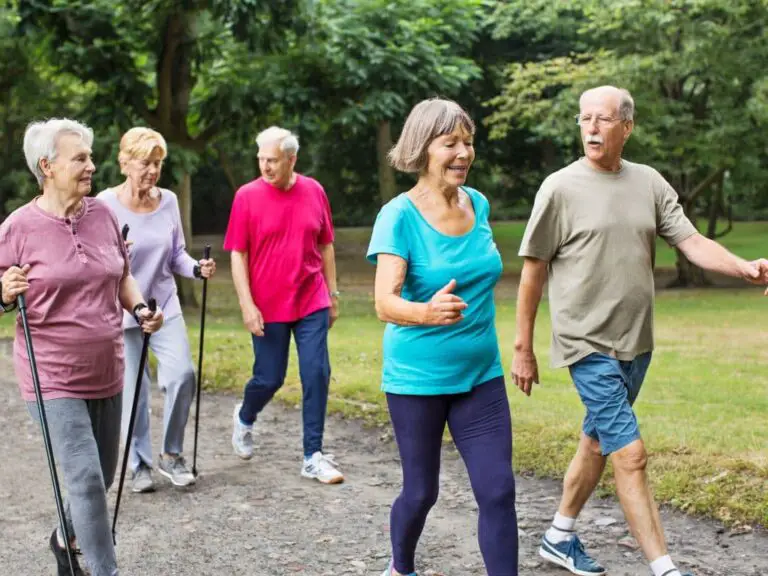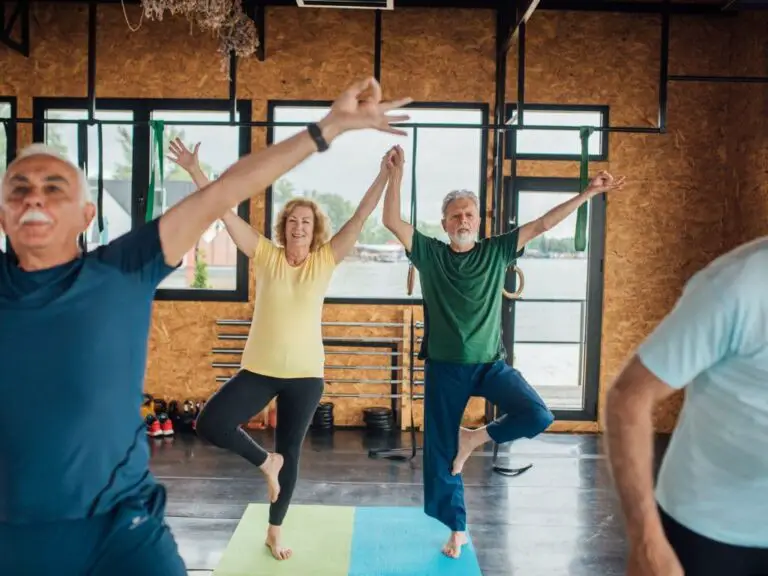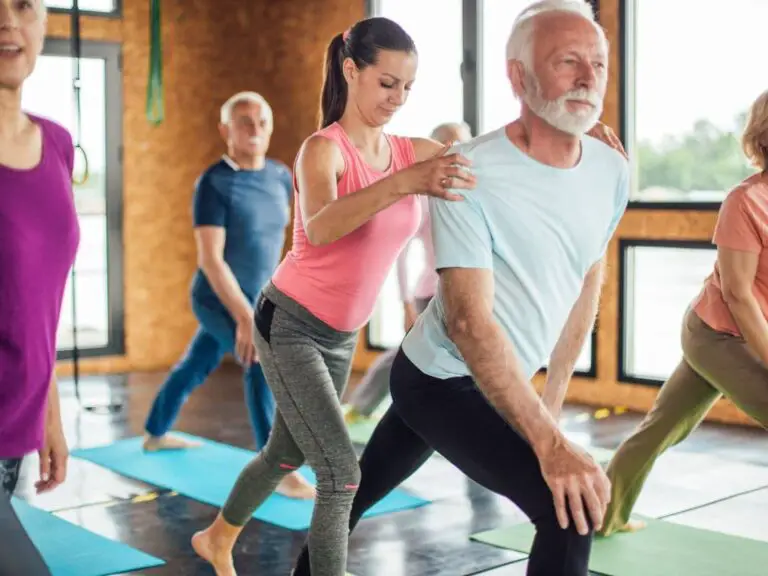Can You Freeze To Death in a Cold House?
What comes to your mind when you hear “freeze to death?” An accident where someone falls through the ice or someone who’s caught in the cold for too long? The one thing that doesn’t get much attention is a cold house.
But can you freeze to death in a cold house?
Yes, it is possible to freeze to death in a cold house. Our bodies get weaker at controlling temperature as we get older. Elderly people are especially prone to hypothermia, or low body temperature.
A cold house can lead to major discomfort and even lead to death due to one of 2 reasons:
- One, a drop in the core body temperature
- Or two, frostbite due to the extremely cold weather.
Click here to check out the best space heater for seniors on Amazon.

In the rest of the article I will elaborate more on how hypothermia can lead to death and the precautionary measures you can take to prevent freezing to death in a cold house.
How Is It Possible to Freeze to Death in a Cold House?
Hypothermia can happen indoors, especially in cold temperatures. So it’s crucial to take care to stay warm and healthy all winter. So while the chances of freezing to death in a cold house are minimal, the threat is still very real.
Here are some of specific circumstances that can cause hypothermia:
- Not wearing warm clothing for the season.
- Being unable to change out of wet garments or go to a warm, dry spot while spending too much time outside in the cold.
- Slipping and falling, as in a boating accident.
- Living in a home with inadequate heating or excessive air conditioning that makes it too cold.
While hypothermia sounds pretty scary, there’s no reason to be concerned. It mostly occurs in extreme conditions. These include:
1. Drop in the Core Body Temperature
“There are no hard-and-fast rules as to the exact temperature at which you can get hypothermia or the amount of time it takes.”
~ Thomas Waters, MD (source)
An individual’s average body temperature is 98.6 degrees Fahrenheit (37 degrees Celsius). When the core body temperature falls to below 95 F (35 C), hypothermia sets in.
Surprisingly, you can get hypothermia in air temperatures between 30 and 50 F (minus 1 to 10 C). The temperature is relatively cool but not freezing. This is especially true if you get wet from sources like rain, sweat, or immersion in cold water.
According to Michael Sawka, your body loses heat around 25 times more quickly in water than it does in air.
Furthermore, when your body temperature drops, it prevents critical organs from working properly, including the brain and heart.
2. Frostbite Due to Extreme Cold Weather
Although severe weather is frequently required to cause hypothermia in a healthy person, frostbite occurs more frequently. The reason? Direct contact with ice, very cold liquids or freezing metals.
Because your body will try to keep its core warm by reducing blood flow to those areas in cold weather, your fingers and toes are more susceptible to frostbite.
Even though shoes often keep your feet warm, toe temperatures can drop quite low. And if you sweat, the moisture will further pull heat away from the area.
However, because frostbite is caused by freezing, it cannot occur when the air temperature is higher than 32 F. (0 C).
What Are the Symptoms of Hypothermia?
In the off chance that you do end up getting hypothermia it is always better to know what to watch out for.
Here are a few common symptoms that could induce hypothermia.
1. In Adults:
- Shivering
- Exhaustion or feeling very tired
- Confusion
- Fumbling hands
- Memory loss
- Slurred speech
- Drowsiness
2. In Babies:
- Bright red, cold skin
- Very low energy
Which Preventive Measures Can Help Combat Hypothermia?
Time is imperative when it’s Hypothermia. And as they say – prevention is better than cure. In case you fall prey to hypothermia, we’ve got you covered.
Taking the following preventive measures will help you combat hypothermia.
- You must always be well dressed, especially the winter one. It is advised to dress in at least three layers: an insulating layer, an outer layer that shields them from the wind, and a layer that wicks moisture away from their skin.
Additionally you should also wear thick, insulated boots because the feet and toes are particularly susceptible to frostbite.
- You might want thermally insulated window coverings to protect against cold temperatures. Extra protection is always a good idea.
- Alway carry out a pipe check. Make sure that your gutters are free of obstructions and that there are no missing or loose shingles. When the winter weather arrives, these quick fixes can help stop leaks and water damage.
- Look for gaps or cracks in your windows and doors where heat may be escaping from your house. These areas can be weatherstripped and caulked to seal in heat and save energy costs all season.
- If you don’t already have storm windows and doors, purchase them. While still allowing natural light into your home, storm doors provide an additional layer of protection from draughts.
- Rather than waiting until bitter cold weather arrives, make an investment in a high-quality heating system today. By doing this, you may ensure that you’re comfortable during the entire season without overtaxing your heater.
- Cover yourself with a water-resistant coat, gloves, a face mask that covers the mouth and face, and water-resistant boots. This will further help keep the chill away and keep you warm and cozy.
- Another useful hack would be to utilize daytime natural light. This ‘sun kissed’ look will also help lower your heating bills. South-facing windows can have their curtains or blinds opened to let in solar heat, then closed at night to assist keeping the heat inside.
Final Thoughts
The drop in temperatures is directly related to an increase in health issues. However, preparation can help you ride out the cold weather safely.
Remember to dress warm and cover your windows with thermally insulated coverings. Furthermore, look for gaps and cracks and get yourself a good heating system.
Finally, soak in the sun as much as you can! If we are careful and cautious, we can all have a healthy, happy and wonderful winter season.
Frequently Asked Question
-
Can you freeze to death in a cold house?
Although chances of your house freezing to death are low, you could be seriously injured by fire, carbon monoxide poisoning, or lack of oxygen.
-
What temperature should an old person’s house be?
Ideal living room temperature should reach 70F (21C), while bedroom temperatures should not exceed 64F (18C). Age UK research (9), however, shows that more than 80% of seniors don’t know what the optimal living and sleeping room temperatures are.
-
What temperature should a house be for a 70 year old?
According to Age and Aging research, the ideal room temperature for elderly people is about 78°F. It is recommended that the temperature in an elderly’s room not drop below 65°F. This will prevent them from getting too cold.
-
Do the elderly need less sleep?
It is interesting to note that older adults require about seven hours more sleep each night than younger adults. Many older adults get far less sleep than they should. They often struggle to fall asleep.
-
What temperature is too cold for humans?
Hypothermia refers to a condition where the body’s temperature falls below 95F. This can lead to death. It can kill.
-
Is sleeping in cold good for you?
The Harvard Medical School says that your body’s temperature drops right before you go to sleep. Your core temperature drops by between 1 and 2F during sleep to save energy. You will fall to your core temperature faster if you sleep in a cooler room. This will make it easier for you to fall asleep and stay asleep.
-
What is an unhealthy room temperature?
For people over 65, a safe temperature should be anywhere from 68 to 74 degrees Fahrenheit. Temperatures in your house should never drop below 68°F. This is because prolonged exposure can lead to respiratory diseases and hypothermia.
-
Is it healthy to walk in the cold?
Exposure to cold can activate the immune system, increasing your resistance to infections. Walking or engaging in sport during winter months can reduce the likelihood that you will contract illness.
-
Can a low body temperature make you tired?
You can lose heat even faster than your body can make it. Hypothermia can result in a low body temperature. This can cause you to feel sleepy, confused and clumsy. It can happen gradually, and it may affect your thinking. You might not be aware that you are in need of help.
-
Can a cold house make you sick?
It is bad for your health to live in cold homes. Your health could be at risk if you are unable to pay heating bills or your house is damp and cold. The cold can cause a variety of problems and diseases, including blood pressure rises, common colds, heart attacks, and pneumonia.
-
What is winter wellness?
It is crucial to be mindful of winter wellness during the colder months. Our bodies crave warmth and comfort in winter. It can feel like summer is a distant memory and it can be difficult to find the motivation you need for winter.
-
What kind of vitamin deficiency makes you cold?
Vitamin B12 deficiencies: Vitamin B12 plays an important role in red blood cell production and oxygen transport. Vitamin B12 deficiency is a condition where the body cannot make red blood cells. The lack of vitamin B12 can often cause chills or feel cold.
-
What action does your body automatically trigger when you are too cold?
Cold exposure stimulates the cold receptors in the skin, which results in cold thermal sensations as well stimulation of the sympathetic nerve system. The skin, arms, and legs experience vasoconstriction due to sympathetic stimulation.
-
How cold is too cold for elderly to be outside?
Dr. Frates recommends that you exercise indoors if it is extremely cold, wet, snowy or icy. If outside temperature drops to 32 F, skip outdoor exercise.
-
Why do I feel the cold more than others?
Everybody reacts differently to cold. Some people experience cold less often than others. This phenomenon is known as cold intolerance. Cold intolerance can also be influenced by gender. Because women have a slower resting metabolism rate, they are more susceptible to feeling cold constantly.






